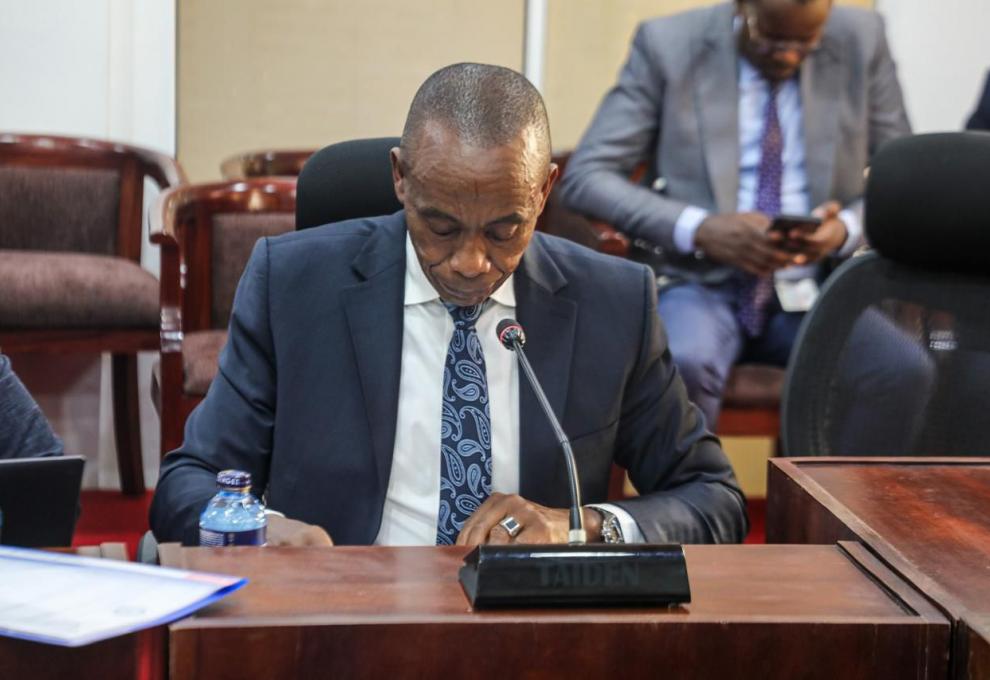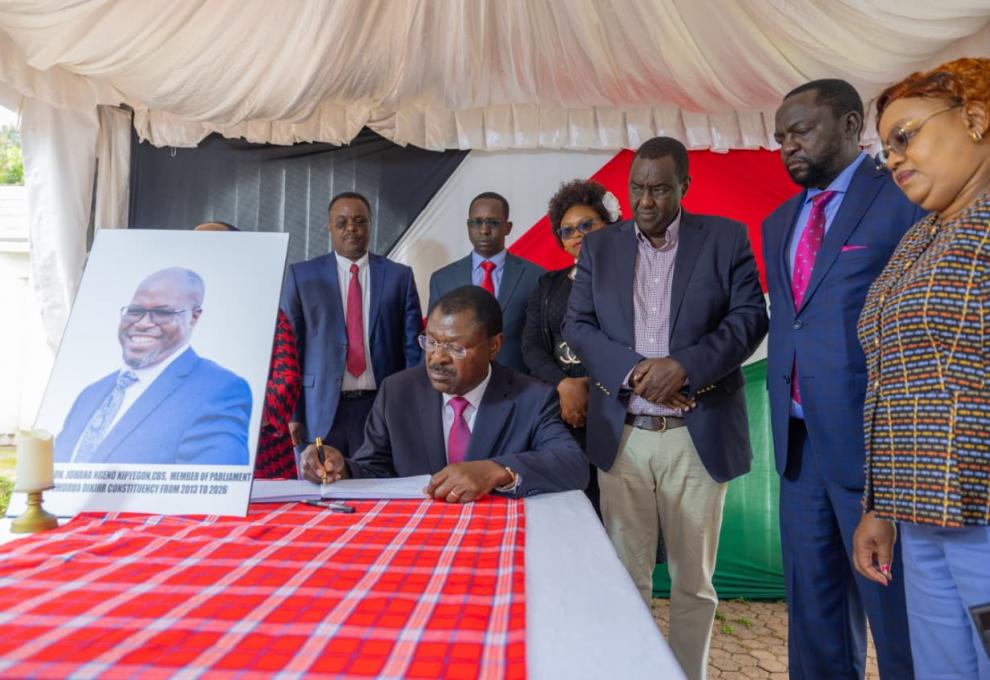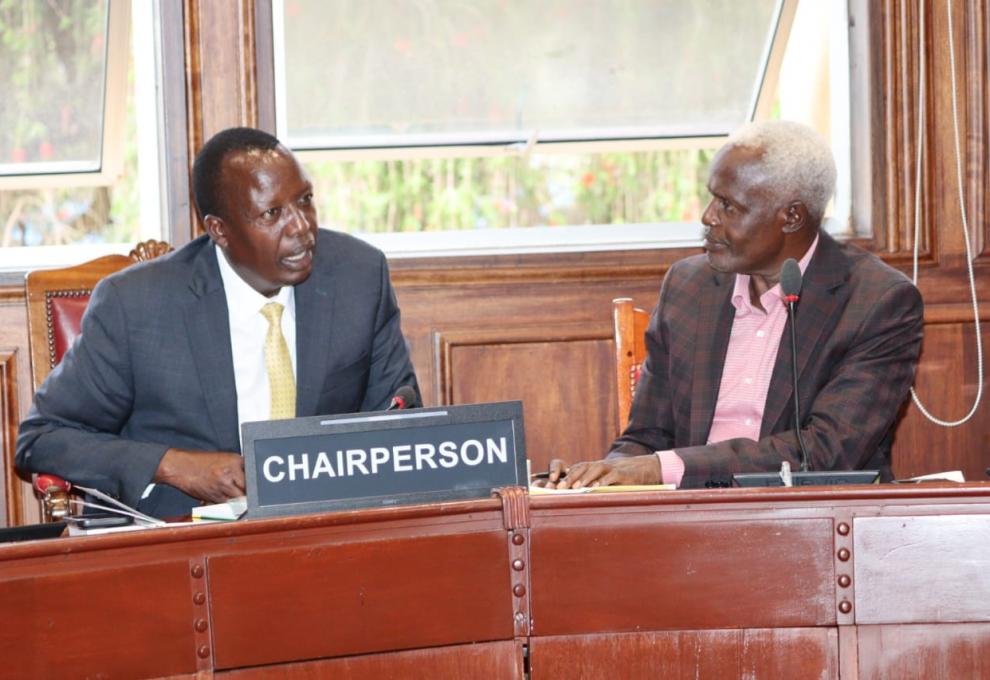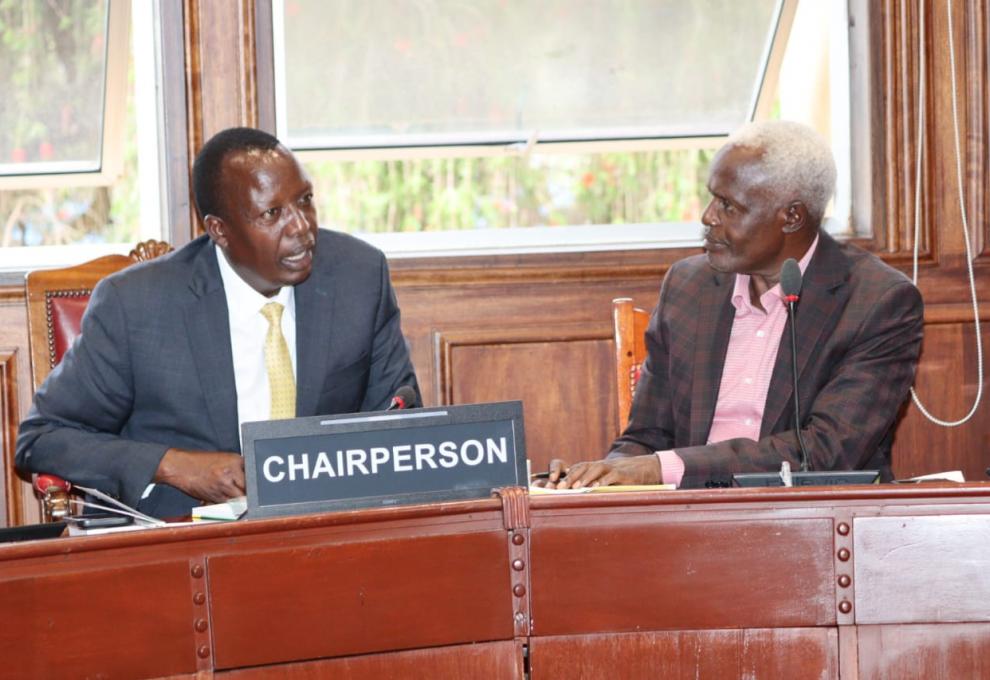𝐒𝐄𝐍𝐀𝐓𝐄 𝐏𝐑𝐎𝐁𝐄𝐒 𝐃𝐄𝐂𝐋𝐈𝐍𝐄 𝐈𝐍 𝐏𝐘𝐑𝐄𝐓𝐇𝐑𝐔𝐌 𝐈𝐍𝐃𝐔𝐒𝐓𝐑𝐘
The Government has undertaken a series of policy and regulatory reforms to revive Kenya’s pyrethrum sector amid declining production and historical challenges affecting farmers. This was revealed this Wednesday when the Cabinet Secretary for Agriculture and Livestock Development, Mutahi Kagwe, appeared before the Senate plenary to respond to questions from Senators.
Sen. Prof Tom Ojienda, SC (Kisumu), sought a response on the status of pyrethrum farming, market prospects and the future of the sub-sector. Speaking during the session, CS Kagwe defended the Government’s approach, insisting that ongoing interventions were beginning to restore confidence in the industry, which was once one of Kenya’s leading foreign-exchange earners.
Responding to a question on the state of pyrethrum farming in Homa Bay County, the Cabinet Secretary told Senators that the county does not meet the ecological requirements for the crop and therefore has no active production. He explained that climatic and geographical factors make Homa Bay unsuitable for pyrethrum cultivation. “Homa Bay County is not a pyrethrum-growing zone since the climatic conditions are not favourable,” he stated, citing the county’s altitude range of 1,163 to 1,219 metres above sea level, rainfall levels of 700 to 800 millimetres and temperatures ranging between 17 and 34 degrees Celsius. According to the CS, these conditions fall far below the thresholds required for the crop, which performs best in highland regions with altitudes of between 1,700 and 3,000 metres, well-drained volcanic soils, annual rainfall above 800 millimetres and sustained cool temperatures below 18 degrees Celsius to trigger proper flowering.
CS Kagwe further informed the House that the position had been confirmed by the Homa Bay County Government through a letter from the Deputy Governor dated 28 May 2025. He noted that the counties suitable for pyrethrum cultivation remain concentrated within Kenya’s highland belt, stretching across parts of the North Rift, South Rift, Central, Eastern and some counties in the Lake Region Economic Bloc such as Kisii and Nyamira.
On the question of reforms in the sector, CS Kagwe said the Government was implementing significant policy changes aimed at revitalising the pyrethrum industry, improving farmers’ livelihoods and addressing global market challenges. He noted that one of the priority areas was the distribution of high-quality and clean planting materials to boost productivity in counties with suitable climatic conditions. He told Senators that the Government, through the Agriculture and Food Authority and the Pyrethrum Processing Company of Kenya (PPCK), had distributed millions of seedlings, tissue-culture plantlets and clonal materials to several counties, including West Pokot, Elgeyo Marakwet, Nyandarua, Nakuru and Kericho.
The CS said the Government was also promoting public-private partnerships to expand production and enhance value addition. He cited private-sector players such as Botanical Extracts, Kentegra Biotechnology and Africhem Technologies as key partners supporting the revival of the sub-sector through investments in processing and commercialisation of pyrethrum products. “We are encouraging the participation of the private sector in the growing and processing of pyrethrin to make the sub-sector more competitive,” he said.
On the issue of financial support, the Cabinet Secretary revealed that the Government allocated Ksh 105 million to the Pyrethrum Processing Company of Kenya in the 2024/25 financial year and a further Ksh 125 million in the current year to help settle debts, purchase seeds, propagate planting materials and fund extension services. He acknowledged, however, that the allocations were insufficient to fully restore the industry, saying the funds were “not adequate to revive the pyrethrum industry”, but affirmed that the Ministry was working within available resources to sustain the ongoing reforms.
He further addressed concerns about delayed payments, a major challenge historically associated with the sector. He told Senators that the Agriculture and Food Authority was regulating all stakeholders to ensure prompt payment of farmers based on pyrethrin content. Although PPCK had adopted an advance-payment model in principle, he conceded that cashflow constraints had hindered its implementation. “The advance is meant to cushion growers and enable them to manage agronomic practices, but this is not happening due to cashflow constraints,” Kagwe said, noting that resolving the issue was central to stabilising the sector and encouraging farmers to return to pyrethrum cultivation.
Sen. Ojienda also sought clarification on what the Government was doing to enhance farmers’ access to certified pyrethrum plantlets and extension services. In reply, Kagwe said the Ministry was expanding access to clean planting materials through the multiplication of clonal materials at tissue-culture laboratories in Muguga and Molo. He added that the Ministry, through PPCK and county governments, was offering extension services to farmers guided by a standardised training manual to ensure uniform quality. “We are multiplying clonal materials through tissue-culture technologies to ensure farmers access clean planting materials,” the CS said.
On the question of foreign markets and export guarantees, the Cabinet Secretary reported that the Government was strengthening the regulatory framework of the sector to ensure compliance with international standards. He cited the development of the draft Crops (Pyrethrum) Regulations, 2024, which will guide nurseries, processors and exporters. He further explained that Kenya was actively working to maintain access to key international markets such as the United States and the European Union. CS Kagwe noted that PPCK’s membership in the Pyrethrum Joint Venture, an international consortium of pyrethrum stakeholders, was helping Kenya meet regulatory requirements, including those of the U.S. Environmental Protection Agency and the European Chemicals Agency.
The CS added that the Government had invested in value addition through PPCK, which had successfully registered and commercialised seven pyrethrum-based products targeting the animal health, public health, agricultural and industrial sectors.
He said that the establishment of Special Economic Zones was also expected to attract more private processors by offering affordable industrial spaces and incentives.
Responding to supplementary questions posed by Senators, including Prof. Tom Ojienda (Kisumu), Enoch Wambua (Kitui), George Mbugua, Daniel Maanzo (Makueni) and Eddy Oketch (Migori), CS Kagwe revealed that no funds are consistently allocated for research, emphasising that the situation has always arisen from insufficient budgetary allocation.
On the question of earnings, the CS informed the lawmakers that the Pyrethrum Processing Company of Kenya generates only KSh 35 million annually, with isolated instances where this figure has risen to KSh 60 million.
According to the CS, the company now has an accumulated debt of KSh 3.5 billion.
The CS took the opportunity to tell the Senators that his Ministry is working with the National Treasury to lease the company, arguing that leasing is the only way to ensure its proper progress.
















